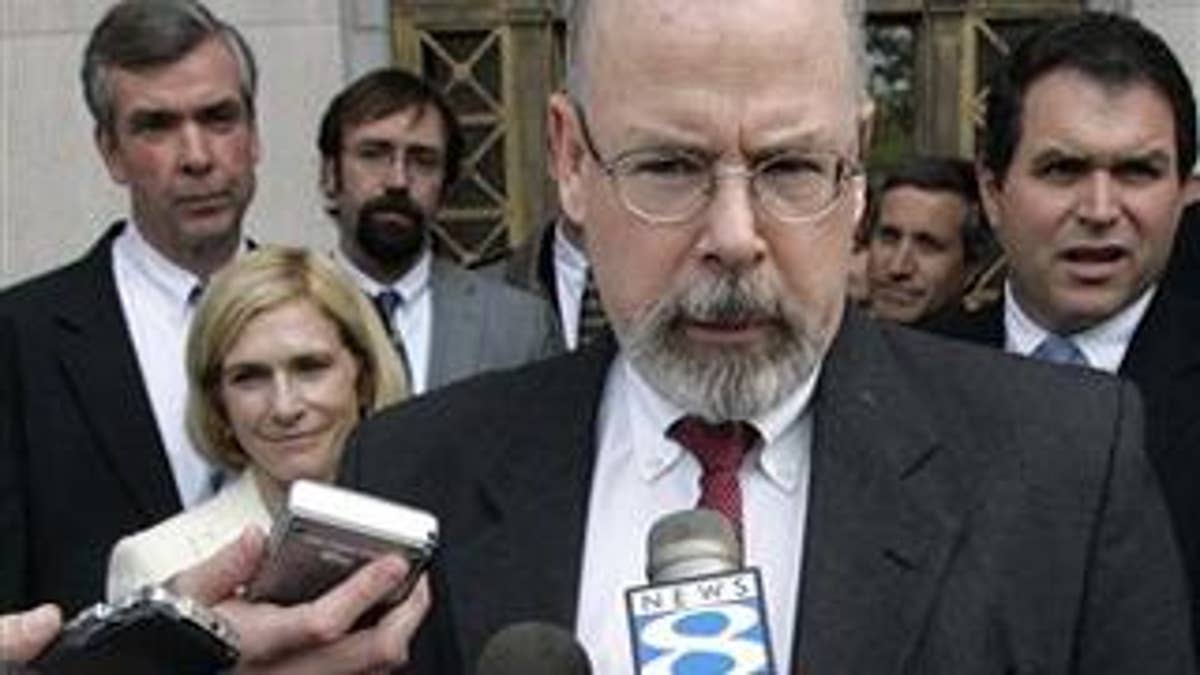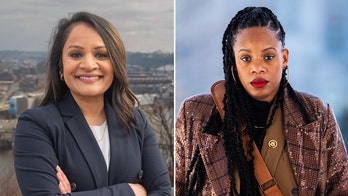
Two new documents released by the CIA on enhanced interrogation techniques appear to declare a success efforts to gain intelligence on potential terror attacks, leading opponents of an investigation into CIA interrogators wondering about the Obama administration's motives.
But some reading a report by the CIA's inspector general say it proves interrogators knowingly went too far -- even beyond what was authorized under Bush-era Justice Department legal memos that have since been withdrawn.
Former Vice President Dick Cheney, the biggest proponent of enhanced interrogation tactics and the release of CIA documents about them, called the newly declassified information proof that interrogators gained valuable intelligence and saved lives.
"The documents released Monday clearly demonstrate that the individuals subjected to enhanced interrogation techniques provided the bulk of intelligence we gained about al Qaeda. This intelligence saved lives and prevented terrorist attacks. These detainees also, according to the documents, played a role in nearly every capture of al Qaeda members and associates since 2002," Cheney said in a statement issued late Monday.
His opponents say Cheney shouldn't be a judge of anything.
"Let's be honest with ourselves. I think Vice President Cheney is held in enough of a kind of disregard by large segments of the U.S. public, to have him on one side of the debate frankly only helps the administration," said Richard Goodstein, a political adviser during the Clinton administration.
Among the documents released by the CIA is one written by a CIA analyst in July 2004 that focuses on the use of EIT against Khalid Sheikh Mohammed, the self-confessed architect of the Sept. 11, 2001, terror attacks.
In the document, Mohammed is described as "one of the U.S. government's key sources on al Qaeda. As a detainee, he has provided reports that have shed light on al Qaeda's strategic doctrine, plots ... and the likely methods for attacks in the U.S. homeland."
The second document is an overall assessment of the value of detainee information. In its key findings it states that since Sept. 11, 2001, "detainee reporting has become a crucial pillar of U.S. counterterrorism efforts, aiding intelligence and law enforcement operation to capture additional terrorists, helping to thwart terrorist plots and advancing our analysis of the al Qarda target."
"Detainees have given us a wealth of useful (redacted) information on al Qaeda members and associates; in fact, detainees have played some role (redacted) in nearly every capture of al Qaeda members and associates since 2002," reads another finding.
On Monday, Attorney General Eric Holder appointed prosecutor John Durham to conduct a preliminary probe to determine whether a full investigation and possible criminal prosecution against CIA officers and, in a limited number of cases, contractors, went beyond the legal guidelines.
The data used by Durham are not new. They were reviewed by federal prosecutors in the Eastern District of Virginia once already. The prosecutors concluded that only one case should be pursued. It was and the contractor is serving time in prison. IG John L. Helgerson noted that case in his report.
He added that investigators at the CIA "found that a large number of agency components and individuals in the post-9/11 period worked hard, selflessly and effectively to capture terrorists and elicit actionable intelligence information. We also found significant issues of concern. Especially in the early period when the agency was scrambling to respond to the events of 9/11, its officers were forced to improvise, as management oversight, staffing, training, written guidance, and many processes and procedures were still being established."
Since the report, the administration has changed, and Holder's decision has reignited a debate about whether reinvestigating those efforts will weaken the nation's future security.
"I think the point we need to look at is that even in 2004, career prosecutors, career investigators, career folks at the Office of Professional Responsibility, looked at this inspector general's report and did not make a recommendation that we should open prosecutorial activities against people who were working in the field on our behalf to protect us from terrorist attacks," said Fred McClure, former White House legislative director under the first President Bush.
In his statement, Cheney said interrogators "deserve our gratitude" and "do not deserve to be the targets of political investigations or prosecutions."
He said the Obama administration decisions to investigate and to move interrogation authority from the CIA to the White House serve "as a reminder, if any were needed, of why so many Americans have doubts about this administration's ability to be responsible for our nation's security."
But Goodstein said no evidence proves that the Bush administration made the country safer.
"It's one thing if the Bush-Cheney record was clear on defending the country and protecting the U.S. in a positive way around the world," he said. "I don't think the record supports that."
Goodstein added that under the Bush administration, the U.S. image was tarnished and the nation sustained its worst attack at home.
"For him to say we're more exposed is a bit much," he said.
House Speaker Nancy Pelosi has pushed for an investigation into the program despite being forced to fend off withering criticism for accusing the CIA in May of lying to her in 2002 about its use of waterboarding. House Judiciary Committee Chairman John Conyers has said the current investigation doesn't go far enough.
Rep. Pete Hoekstra, the top Republican on the House Intelligence Committee, on Tuesday predicted that the investigation will disrupt CIA counterrorism initiatives in Afghanistan.
"President Obama has said repeatedly that he wants to move forward, but his Justice Department seems intractably stuck in reverse. ... The attorney general needs to stop his zealous attempt to make this out to be a systemic problem," Hoekstra said.
"Disgruntled lawyers at DOJ, having lost the debate that America's counterrorism efforts, should be focused on prevention not prosecution, (and) need to put an end to his bureaucratic turf battle," he continued.
Hoekstra's committee has launched an investigation to determine whether the CIA broke the law by not informing Congress earlier about a secret plan to train teams to kill Al Qaeda leaders abroad. CIA Director Leon Panetta told the committee and its counterpart in the Senate about the program in June, a day after he first learned of the program and canceled it himself.




